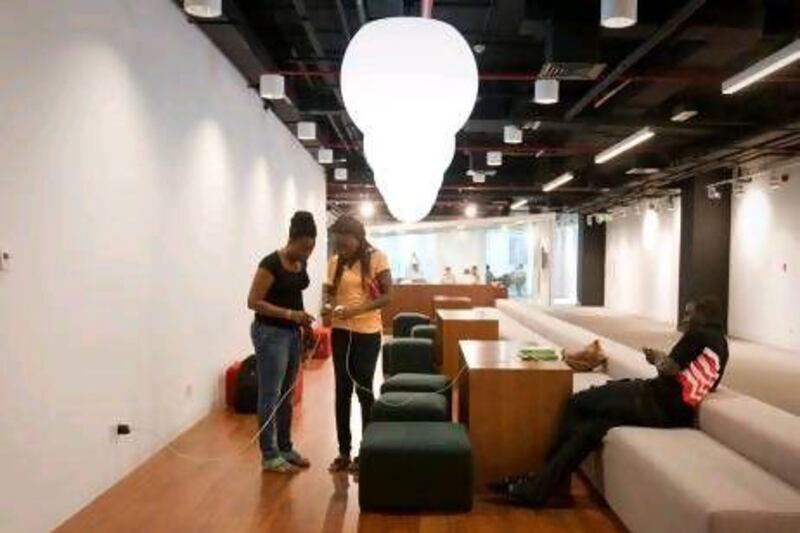DUBAI // With no fewer than 20 institutions offering Master's in Business Administration degrees, Dubai is not short of a business school. Forty per cent of the emirate's students are taking some kind of business degree.
In that competitive market, one school has not only survived and even defied the economic downturn, but has now managed to open its own dedicated campus.
Hult, which began in Boston in 2006, opened in Dubai International Academic City with just 130 students in 2008.
Since then it has grown to 400 students, and hopes to reach 600 by next year. This term it opened a new Dh20million campus in the heart of Internet City, offering three postgraduate degrees: a full-time MBA, a part-time Executive MBA, a Master's in business.
A dedicated campus is a rarity for Dubai business schools. Most rent small office space by the hour or day, as classes - especially for Executive MBA students - are held only a few times a year.
Dr Warren Fox, head of higher education at the Knowledge and Human Development Authority, says US degrees such as those offered by Hult are "highly sought after".
And it lets students switch between its five campuses around the world. As well as Dubai and the original campuses in Boston, there are branches in San Francisco, London and Shanghai.
"Hult are one of the first in the world to implement this multi-campus concept, where students have exposure and experience with different countries, and this is an edge up in their careers," he added
In starting small and slow and gradually expanding, it has followed exactly the model recommended by Dr Ayoub Kazim, the head of Dubai's academic free zones, for branch campuses.
Speaking at a conference in Dubai this week, Dr Kazim stressed the importance of location. "It's about accessibility," he said.
Robert Lillicrapp, Hult's executive director, admitted the remote DIAC location was "the biggest challenge to recruiters".
It deterred some students who wanted to be in the heart of business, and near gyms, restaurants and coffee shops.
The new campus, by contrast, is close to the Metro and areas such as Media City, putting it within reach of hundreds of global companies from Cisco to GE.
Mr Lillicrapp said the ability to switch between campuses had been key to Hult's success.
It was certainly a selling point for LaRuan Cole, 31, who has just begun his MBA. He has come from Washington, where he worked for a bank, to get a better understanding of a developing economy. He hopes to set up his own business in sub-Saharan Africa.
"What attracted me was the international rotation," he said. "And the diversity of the class. In Boston, it was a lot more western-focused."






